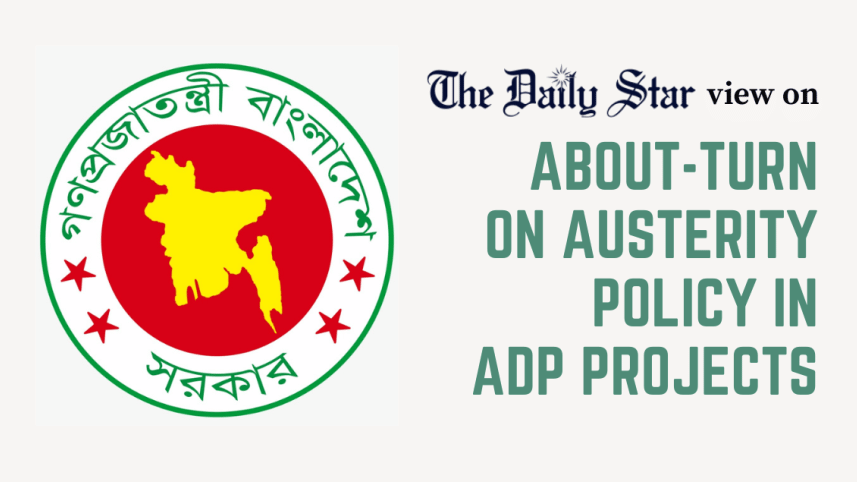Poor choices in ADP revision

Every year, the budget for the Annual Development Programme (ADP) is revised in line with the economic needs of the hour – and this year is no exception. According to a report by this daily, the ADP is expected to be trimmed down by about 6.1 percent to Tk 231,000 crore. However, what has come as a surprise is not the revision itself, but the way it is being done, which signals a dramatic U-turn on the government policy of fiscal austerity.
At the start of the current fiscal year, the finance division had issued details of the austerity measures to be implemented. In fact, only last month, while issuing guidelines and directives to ministries and divisions regarding formulating estimations of revised budgets, it suggested cutting expenditures in the revised budget in accordance with the prime minister's austerity directives. Yet, the fiscal coordination council has now reportedly decided to step back from austerity policies, and instead opt for an expansionary policy supposedly to revive economic activities and generate employment. It has also been decided that the government's own funds in the ADP will not be revised down. Instead, the foreign fund portion will be slashed – just like every year – by about 16.4 percent.
At a time when dwindling foreign exchange reserves have created a great deal of macroeconomic stress, we find it extremely difficult to understand this decision. Were economists and other experts consulted before embarking on this business-as-usual approach, instead of coming up with policies tailored to reduce inflation and alleviate the foreign exchange crisis? Reportedly, inflation averaged 8.76 percent in the first six months of the current fiscal year, and experts have warned that an expansionary policy now would only make the situation worse. More importantly, they have pointed out that this policy may not necessarily have the intended effects, since all ADP expenditures are not equally employment-generating.
This becomes evident when one looks at the current fiscal year's development budget. For example, the power and energy sector is receiving the second highest proportion of funds – a large portion of which is lost to energy subsidies and capacity charges, without any opportunity to generate employment or revive the economy.
It seems obvious that the current ADP revision has been made for the same reason that it is every year – the inability to utilise these funds properly. One may recall that in the previous fiscal year, only 36 percent of the development budget was spent by the government in the first eight months. Clearly, the key issue here is one of governance. In recent years, we have seen how cost overruns and delays have become the norm when it comes to development projects. The inefficiency, corruption and sluggishness that characterised the implementation of such projects can no longer be tolerated.
Thus, while the authorities should immediately adapt any ADP revisions to suit our current economic needs, in the long run, the focus should be on the productive use of limited resources. If how the ADP is used every year remains unchanged, we are unlikely to see any changes in how we deal with economic challenges either.



 For all latest news, follow The Daily Star's Google News channel.
For all latest news, follow The Daily Star's Google News channel. 

Comments